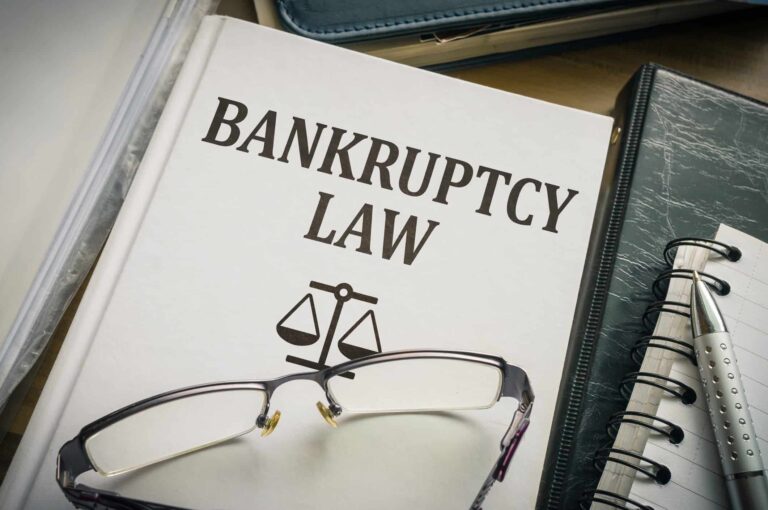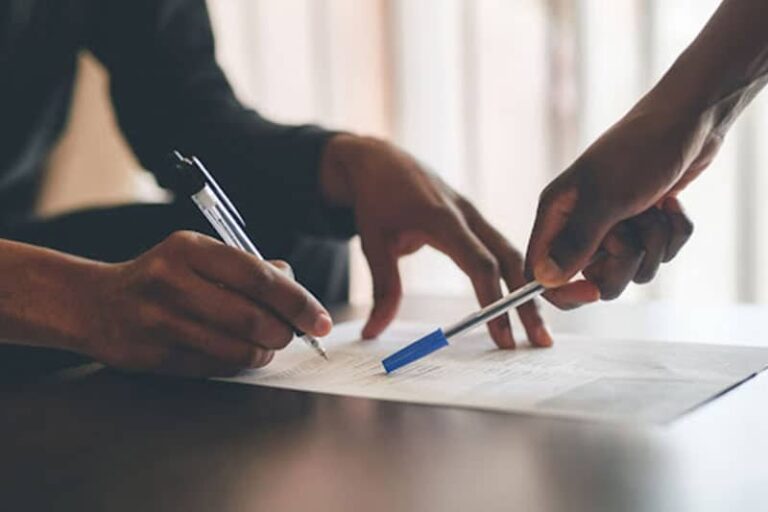How to Repair Credit Score After Bankruptcy

Many people considering filing for bankruptcy worry that their credit will never recover. The truth is, you cannot only rebuild your credit after bankruptcy but also have an excellent score within a few years. If you’re looking for steps on how to repair credit score after bankruptcy, look no further. Read ahead to find out how to build back your credit:
1. Know your credit score and credit report
Following bankruptcy, checking out your credit score will probably be uncomfortable. You may have lost 200 points or more. But knowing where you stand is the first step in reaching your goal of a clean credit report. Pulling a full credit report will show you everything that is going on with your credit score. By following the actions below, you can quickly increase your credit score.
Get a free credit report
Did you know that you can get one annual credit report for free? Thoroughly looking through your full credit report will be the best thing you can do to understand where your credit score is at and determine your next steps for fixing your credit score. Each major credit bureau is required to give you a free credit score every year.
2. Get all your personal information correct
Your basic information has to be entirely up to date, including your residential and employment history. If you can show long-term work and rental stability, future creditors will improve their outlook on your credit requests. Keeping your information up to date is essential when maintaining and improving your credit score by ensuring that your positive improvements remain accurately recorded. Maintain consistent positive actions, and your credit score will increase over time.
3. All debts must be discharged in bankruptcy
You can’t improve your credit score if debts from before your bankruptcy continue to charge you delinquencies. Your credit report should show a zero balance with all accounts “discharged in bankruptcy.” Reach out to the specific credit bureau showing past delinquency and ensure they are aware of the bankruptcy and have the accounts marked as “discharged in bankruptcy.” If you’re having trouble finding information or handling a bankruptcy, contact a Nevada Bankruptcy Attorney for additional help.

4. Make sure to pay bills on time
Regardless of the events leading up to filing bankruptcy, what you do with your credit after is what is most important. Creating new, positive habits that will keep your credit score moving upward is the best thing you can do. Paying bills on time and the total amount due is one of the more critical factors for increasing your credit score. If you struggle with remembering to pay your account on time, try to utilize payment reminders for wherever you make your credit payments.
If you miss a payment for your credit card or other credit lines, it’s not the end of the world. Your credit may ding a bit and lose some points. However, the most important thing is to pay the amount as soon as possible and stay regular on payment dates.
5. Maintain credit history by keeping paid accounts open
The age of your credit accounts determines part of your FICO score. The longer an account is open, the higher the likelihood your credit score will improve. It can be a headache to get to the point of paying a credit card off altogether, and your first instinct might be to close the account as soon as it is paid in full. However, keeping accounts open is best because it will improve your overall available credit and your credit history. Both of these factors can have a positive impact on your credit score.
6. Pay down high-interest credit first
Generally, two main avenues exist to pay down high amounts of credit spread between several credit cards. A high APR on a credit card won’t hurt your credit score as long as you make on-time payments to the card. However, having high balances on cards with high-interest rates can dig you into an even deeper hole when trying to keep up with on-time payments. The two main plans of action to take to pay off high-interest credit are the following:
Pay off the credit card with the highest interest rate
Your first option for paying down high-interest credit cards will be to focus on paying off the credit card with the highest APR. For instance, if you have a card with a 26% APR compared to another card with an APR of 18%, you will want to focus on paying the card with a 26% APR before the interest accumulates into a large sum.
Pay off the credit card with the lowest balance
Alternatively, another option for paying down high-interest credit card balances will be to pay off the credit card with the lowest balance regardless of interest rate. Say you have a balance of $300 compared to a card with a balance of $1200. Irrespective of the interest rate, paying off the $300 credit will ensure you have less interest accumulating over time.
7. Understanding fixed loans versus revolving credit
Understanding the type of credit you have, and utilizing it to the best of your capability, can make a significant difference in your credit report. While there are different kinds of credit, the two main types of credit to be aware of are fixed loans and revolving credit.
- Fixed loans, or installment-based loans, are a form of credit given to you at a set amount and paid in installments until the loan is paid in full. Auto loans and mortgages are examples of fixed loans. Installment credits and installment-based loans are paid by a specific date and will not directly impact your credit score.
- Revolving credit is a line of credit that can be increased or decreased and used to pay back continually until the line of credit is closed. Credit cards are the best examples of revolving credit and can directly affect your credit score.
8. Make sure credit utilization stays low
Your credit utilization determines the amount of credit available to you divided by the amount you have utilized. It is ideal for keeping your credit utilization below 30%. If your credit utilization is higher than 30%, you should prioritize lowering your credit balance. Regarding your FICO score, the amount of credit you owe can affect just over a quarter of your overall score.
If you need to lower your credit utilization ratio, try any or all of these tips:
- Begin paying off your credit cards and accounts as quickly as possible.
- Increase your total amount of credit by opening a new account or card.
- Consolidate your owed credit with a personal loan. A personal loan is a fixed-payment loan and does not affect your credit utilization rate.
9. Get erroneous information removed from your credit report
If there are accounts on your credit report that are not yours, you need to dispute them. Some companies offer to help you remove legitimate items from your report, but their results are dubious, and the accounts usually reappear. If you can make a case that one or more charges on your credit report are not yours, however, you may be able to get them removed. When you go to check your credit report for inaccurate information, be sure to check for:
- Misspellings, incorrect addresses, or other wrong information
- Accounts that are not yours
- Duplicate accounts, especially if they are inaccurate
- Closed accounts that are marked open
- False delinquencies or derogatory marks
10. Find out who has made credit report inquiries
Following bankruptcy, many creditors included in your filing will have reviewed your credit because of delinquent payments. While these are legitimate inquiries, you will want to remove any credit inquiries you did not approve of or do not recognize as one of your account holders.
11. Understand when items can be removed
Specific items can only be on your credit report for a particular time. For example, an account can only stay on your report for seven years from your last purchase or payment date. Know your various accounts’ expiration dates and remove them as soon as possible.
12. Ensure that new collection accounts are accurate
Many creditors will transfer your debt to a collections agency when you are delinquent. Unfortunately, your bankruptcy information does not always make it to these collection agencies, which means that new collections accounts on old debts might appear on your post-bankruptcy credit report. Ensure that the new account’s date reflects the date of the original debt.

13. Be wary of new credit
Opening a new line of credit is not always a bad thing. The number of open accounts that you have can have a positive impact on your overall credit score. The downside to opening a new line of credit or a new credit card is that the lender will perform a hard credit check which can impact your credit score. While opening a new line of credit is not bad, make sure you are not opening multiple credit accounts simultaneously. With each additional hard credit check in a short time, your credit score could be damaged, and lenders also see the activity negatively.
Should I hire a credit repair company or credit repair services?
You can find credit repair companies that will dispute negative charges on your accounts and try to improve your credit score. If you have inaccurate derogatory marks or incorrect information reported to credit bureaus, these credit repair services can be helpful. However, if you have checked your credit score report and the negative impacts on your credit are correct, there’s not much a credit repair company can do that you can’t do yourself. Some credit repair services can cross into unethical practices by disputing accurate negative credit impacts. Repairing your credit score is a long journey, but with some patience and the correct information, you can improve your credit score on your own.
Filing for bankruptcy and dealing with the fallout can be strenuous and stressful. However, there is light at the end of the tunnel. There are numerous methods to increase your credit score, and utilizing all of the information shared here will be a significant first step in rebuilding your credit score. The good news is that you’re not alone on this journey. If you’re searching for more information or a chapter 7 bankruptcy attorney, seek out DeLuca and Associates today. Contact a Bankruptcy Attorney near me to get started.
Sources:
Flanagan, G.L, (18 April 2022) Lending Tree. How to Improve Your Credit Score.
Lexington Law. (3 May 2022) How to Fix Your Credit: 11 Steps to Try.
Luthi, B. (12 January 2021) Experian. Credit Repair: How to “Fix” Your Credit.
VanSomeren, L. (18 May 2021) Forbes. How to Fix Your Credit in & Easy Steps.






